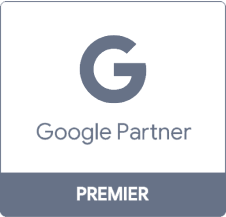What Are the Most Important KPIs for Google Ads?
While it’s always better to have too much information than too little, it’s best to have the right information. That means determining the right KPIs for your site, finding them in Google Ads, and using them to make your PPC campaigns better.
The best metrics may vary from one campaign to another, but these Google Ads KPIs are some of the most useful to achieve success.
1. Impressions
Successful ads have to start by showing up for people in your target audience. Every time your ad displays, it’s called an “impression.”
The impressions metric isn’t necessarily an indication of how well your ad is performing, but it shows you how many people actually see it. And you can’t have a successful ad if nobody sees it in the first place, so you need to watch the number of impressions you get per day, week, or month.
2. Click-through rate
After someone sees your ad, they have an opportunity to click on it. Every time they do, it counts as a click. And every time they don’t, it doesn’t count toward anything.
The percentage of people who click your ads to go to your site is called the “click-through rate” (CTR). These are the people that your ad engaged, and a high CTR is an indication that your ad is performing exceptionally well.
As you measure CTR, you may discover one search term outperforming another, or a call to action that’s particularly powerful. Look at the ads that get the best CTR to determine how you can refine your whole strategy for more clicks.
3. Conversion rate
When someone clicks on your ad, they go to a landing page that encourages them to take a specific action that’ll help them become a paying customer.
The people who follow through with that action contribute to your conversion rate, which is a measurement of how many people click on your ads and then become customers.
This KPI will also give you an idea about how good your Google Ads return on investment (ROI) is. The better your conversion rate, the more money you’re making.
4. Cost per conversion
PPC advertising is unique because of how much control you have over the cost of advertising. You can always adjust your bids for every keyword depending on how much you’d like to spend.
Cost per conversion shows you the average amount of money you spend on PPC for every conversion that you earn. Ideally, this cost will be as low as possible. But not everyone converts after they click your ad, so it’s possible that this cost could be high.
Still, the payoff you get from an average conversion should be more than enough to cover the cost. And if it isn’t, you need to make some big changes to your PPC campaigns.
5. Average position
Average position is an indication of where your ads usually fall when they’re triggered. So if you have an average position of 7.5, you most often show up toward the bottom of ad listings. If you have an average of 3.2, you usually show up at the top.
Your ad needs to place eighth or higher to get on the first page of ad results. Naturally, the ad that’s listed first has the best chance of getting the most clicks, but that doesn’t mean your campaign is bad if you show up lower than that.
In fact, you can still get enough traffic and conversions to justify your PPC campaign if your average position is seventh or eighth — you just won’t get as much traffic as first or second.
6. Quality score
Quality score is an expression of how reliable your company is in showing people relevant information. So if someone looks up “running shoes,” then clicks your ad, but they go to a page about dress shoes, your quality score won’t be high.
However, if someone looks up “running shoes,” then clicks on your ad, and they go to a page that sells sneakers, your quality score will be much higher — and you’ll probably get a new customer!
When your quality score is high, Google Ads will actually give you a discount on your ad costs since you’ve proven that you’re a reliable source of information for Google users. That means your cost per conversion goes down, and your ROI goes up.
But when your quality score is low, you’ll actually pay more to maintain the same ad positioning for keywords. That’s why it’s important to learn how to improve your Google Ads quality score.
Quality score is based on a scale of one to 10, and Google considers five to be average.
If your quality score is a perfect 10, you get a 50% discount on keywords compared to what you spend with a quality score of five.
On the flip side, if your quality score is a one, you pay 400% more because you’ve shown Google that you’re a poor source.
With that in mind, it’s critical to pay attention to your quality score — especially if you want to save money on your PPC campaigns.
WebFX knows KPIs and PPC
At WebFX, we have a full team of PPC experts who have worked in the industry for years. They know how to help companies grow, especially over long periods of time. With your investment in good hands, we’ll check critical KPIs as often as possible to make sure your PPC campaign brings you more customers — and revenue.
Contact us today to set up a PPC strategy that’ll help grow your company!
Related Resources
- 5 PPC Reporting Mistakes and How to Prevent Them
- 7 PPC KPIS for Your Business to Track and Analyze
- How to Improve Your Google Ads Quality Score: 6 Effective Tactics
- How to Use Google Ads Quality Score Insights to Improve Your Campaigns
- PPC Analysis: 4 Tips for Conducting an Impactful PPC Analysis
- PPC Benchmarks for 2024: Your Business vs. Your Industry
- PPC Metrics: 5 Key Paid Search Metrics to Watch
- PPC ROI for Ecommerce: 5 Best Practices to Boost Your ROI
- PPC Tech
- What is Cost Per Mille (CPM) and What is CPM Bidding?
Marketing Tips for Niche Industries
- Handyman Advertising: 3 Ideas for How to Advertise a Handyman Business
- Healthcare PPC: 7 Hospital Advertising Tips for Your Ads
- How to Use PPC for Insurance Agencies
- How Your Cardiology Practice Can Start a PPC Campaign
- Orthodontist PPC: Pay-Per-Click for Orthodontists
- Outstanding PPC for Contractors
- Pay-Per-Click Advertising (PPC) for Cabinet Manufacturers: How to Get Started
- PPC for 3D Printing
- PPC for Accountants: Grow Your Firm with PPC Ads
- PPC for Banks







